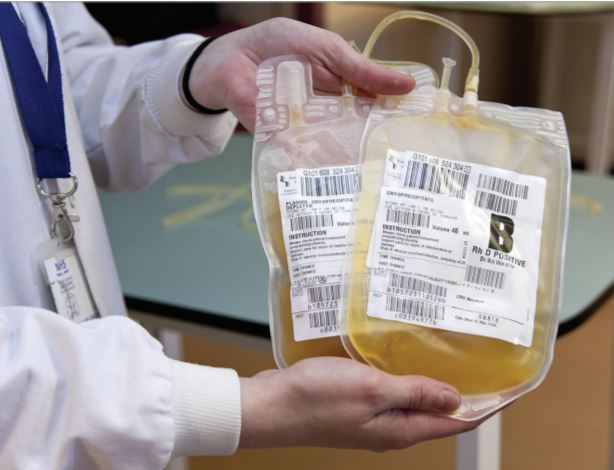
The RECOVERY trial was established as a randomised clinical trial to test a range of potential treatments for COVID-19. Since May 2020, the RECOVERY trial has included a randomised comparison of convalescent plasma vs. usual care alone. Convalescent plasma has been widely used as a treatment for COVID-19 but to date there has been no convincing evidence of the effect of convalescent plasma on clinical outcomes in patients admitted to hospital with COVID-19.
The RECOVERY trial independent Data Monitoring Committee (DMC) held a routine meeting on Thursday 14 January to review the available safety and efficacy data.
On the advice of the DMC, recruitment to the convalescent plasma arm of the RECOVERY trial has now closed. The DMC saw no convincing evidence that further recruitment would provide conclusive proof of worthwhile mortality benefit either overall or in any pre-specified subgroup.
The DMC reviewed data on patients randomised to convalescent plasma vs. usual care. The preliminary analysis based on 1873 reported deaths among 10,406 randomised patients shows no significant difference in the primary endpoint of 28-day mortality (18% convalescent plasma vs. 18% usual care alone; risk ratio 1.04 [95% confidence interval 0.95-1.14]; p=0.34). Follow-up of patients is ongoing and final results will be published as soon as possible.
Recruitment to all other treatment arms – tocilizumab, aspirin, colchicine, and Regeneron’s antibody cocktail – continues as planned.
Martin Landray, Professor of Medicine and Epidemiology at the Nuffield Department of Population Health, University of Oxford, and Joint Chief Investigator, said ‘There has been substantial international interest in the role of convalescent plasma as a possible treatment for patients hospitalised with COVID-19. The results announced today are preliminary and follow-up of patients is ongoing.
‘Once again, the RECOVERY trial is demonstrating the value of large randomised trials to properly assess the role of potential treatments. At this very challenging time, we are incredibly grateful to the hard work of NHS staff and huge contribution made by patients across the whole country.’
Peter Horby, Professor of Emerging Infectious Diseases in the Nuffield Department of Medicine, University of Oxford, and Joint Chief Investigator for the RECOVERY trial, said ‘This is the largest ever trial of convalescent plasma and it was only possible thanks to the generous donation of plasma by recovered patients and the willingness of current patients to contribute to advancing medical care. We owe them all a great debt of gratitude. Whilst the overall result is negative, we need to await the full results before we can understand whether convalescent plasma has any role in particular patient subgroups.’
Dr Gail Miflin, Chief Medical Officer for NHS Blood and Transplant, said ‘These preliminary results from RECOVERY are disappointing but show the value of this large clinical trial in determining how best to treat patients with COVID. Although today’s results are preliminary, and we await the full results with interest, there is no doubt that this trial will provide a real answer to an important question.
‘We are enormously grateful to the tens of thousands of people who have given their time and donated plasma and to the hundreds of colleagues who have worked incredibly hard over many months. We can be incredibly proud of what we have achieved together. NHSBT has helped deliver the largest ever randomised control trial of convalescent plasma. This world leading trial could only be completed because of the immense professionalism, expertise and hard work of NHSBT colleagues and partners.’

Leave a Reply